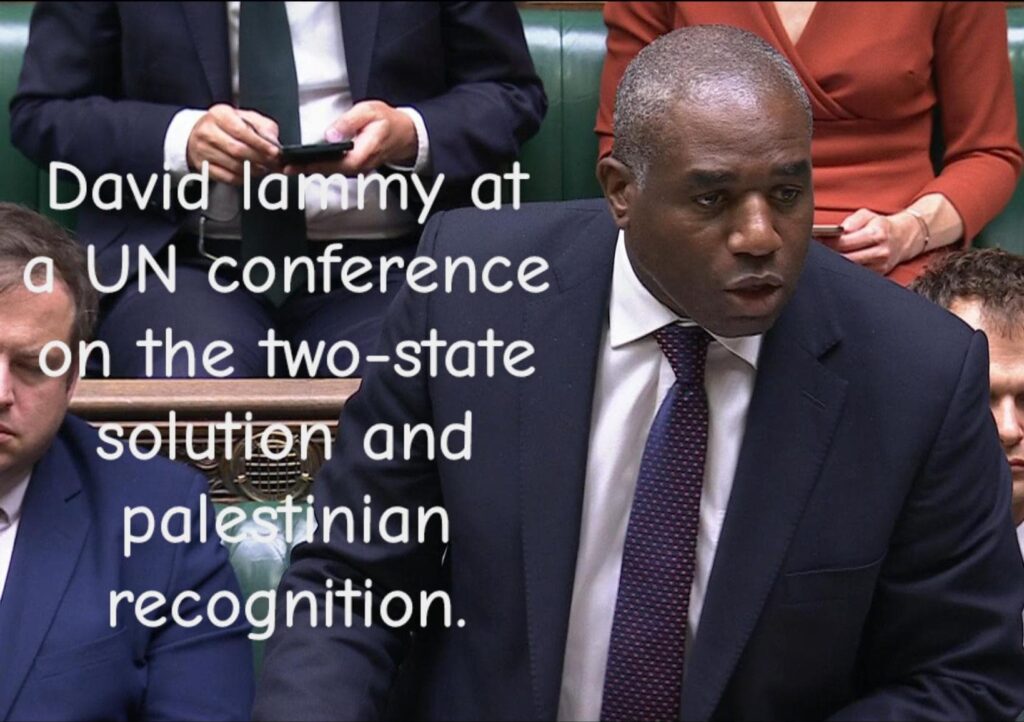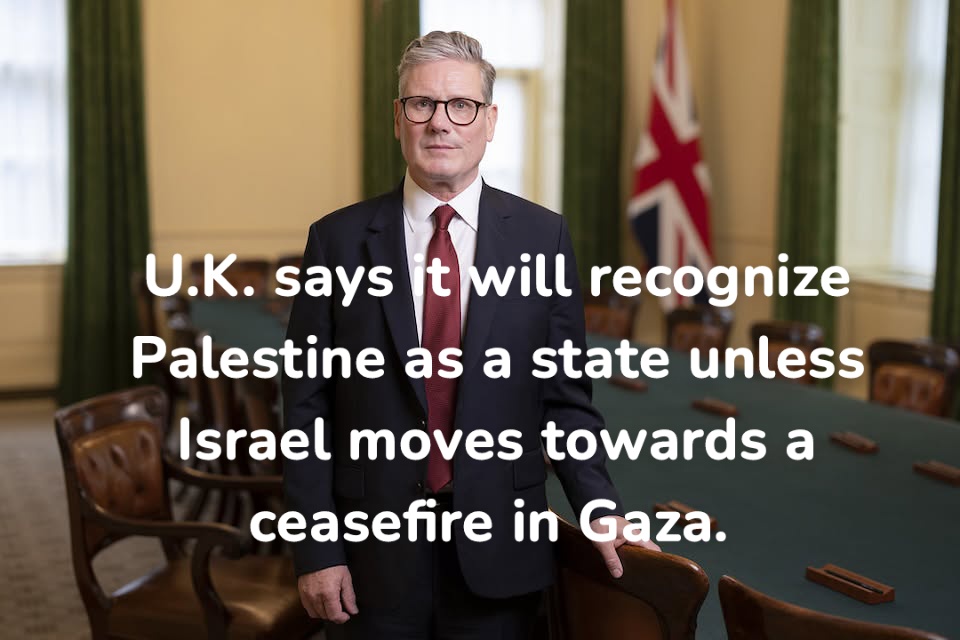Prime Minister Sir Keir Starmer’s declaration reflects the UK stand on Palestinian state, marking a significant shift in British foreign policy.
He indicated a willingness to delay formal recognition if Israel were to take meaningful
actions to alleviate the dire situation in Gaza, agree to a ceasefire, and commit to a durable
peace that would revive the long-stalled two-state solution.
However, Israel rejected the offer almost immediately after Starmer concluded his remarks at Downing Street. According to a senior British official, the UK stand on Palestinian state now appears “irreversible,” prompting expectations that Starmer’s team will begin preparing his speech for the UN General Assembly in September.
Starmer does not anticipate that the UK’s policy change will swiftly lead to the
establishment of an independent Palestinian state—many Israelis, in fact, believe the ideal
time for that would be “never.” Nonetheless, diplomatic insiders say the aim is to
strengthen moderate voices on both sides and reawaken belief in the feasibility of peace.
Achieving that goal will be extremely difficult—not just due to the 7 October 2023 Hamas
attacks that killed about 1,200 people, including hundreds of Israeli civilians, and took
hostages, but also because of Israel’s devastating military retaliation, which has reportedly
killed tens of thousands of civilians and left Gaza in ruins. Moreover, past peace initiatives
have repeatedly failed, from the 1990s negotiations that ended in violence to every
subsequent effort that has collapsed.
According to Gaza’s Hamas-run health ministry, more than 60,000 people have been killed
during Israel’s offensive. UN-backed experts have warned that famine is already unfolding
in Gaza, while Israeli human rights organisations accuse the government of committing
genocide.
Israel’s government responded furiously within minutes of Starmer’s announcement. That
evening, Israeli Prime Minister Benjamin Netanyahu issued a scathing statement on social
media:
“Starmer rewards Hamas’s monstrous terrorism and punishes its victims. A jihadist state
on Israel’s border TODAY will threaten Britain TOMORROW. Appeasement towards jihadist
terrorists always fails. It will fail you too. It will not happen.”
Netanyahu has rejected allegations that Israel is responsible for the humanitarian
catastrophe in Gaza. Politically, he could not have agreed to the UK’s conditions for
postponing recognition—doing so would likely have collapsed his coalition, which relies on
hardline nationalist factions pushing to annex the occupied territories and remove
Palestinians, rather than grant them statehood. Netanyahu has argued that a Palestinian
state would serve as a base for further attacks like those of 7 October.
U.S. President Donald Trump also condemned the UK’s decision while speaking to
reporters during his return from a golf trip to Scotland.
Up until recently, Starmer had not been persuaded that the moment was right for
recognising Palestinian statehood. But the harrowing images of starving children in Gaza,
amid massive destruction and civilian deaths, reportedly became the tipping point.

In New York shortly after Starmer’s announcement, UK Foreign Secretary David Lammy
received a warm ovation at a UN conference on the two-state solution and Palestinian
recognition.
Lammy rejected claims that a Palestinian state would pose an existential threat to Israel.
He stated that the UK’s strategy for ending Gaza’s suffering, fostering peace in the region,
and addressing what he called a historical injustice, lies in reviving the two-state solution.
The conference, chaired jointly by France and Saudi Arabia, produced a seven-page
document outlining a path forward. It includes condemnation from Arab states of both
Hamas and the 7 October attacks on Israel.









